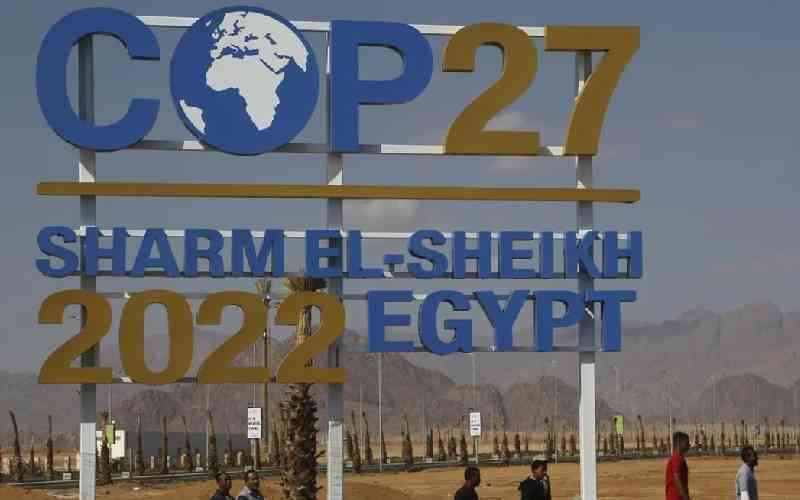×
The Standard e-Paper
Smart Minds Choose Us

The Conference of Parties 27 (COP27) formally started on Sunday at Sharm el-Sheikh, Egypt, with the issue of loss and damage dominating talks.
"Loss and Damage" are costs that nations - mainly poor and developing countries - are incurring due to adverse effects of climate change like drought, floods and high temperatures.